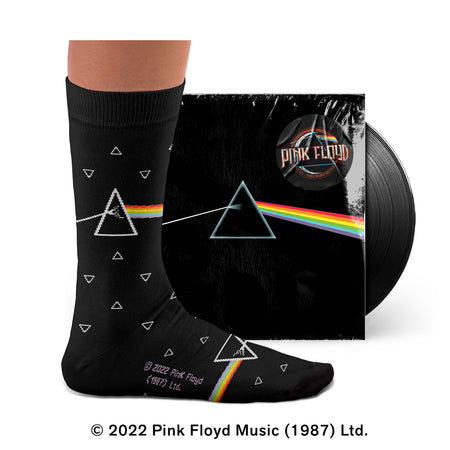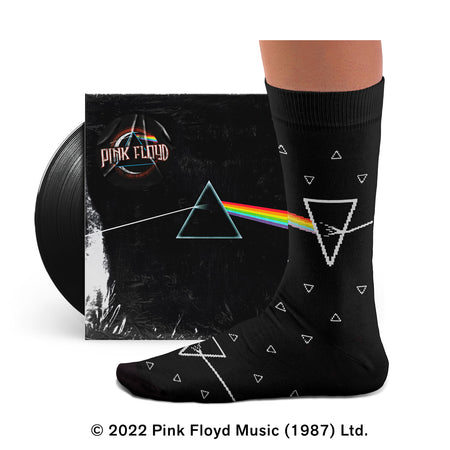











Pop Art Socks
Did Warhol, Haring or Hockney make Art better as a whole? No one can say for sure and maybe that's the whole point. But we're pretty sure these would make them look twice.
Pop Art materialized in New York and London during the mid-1950s and became the dominant avant-garde style until the late 1960s. It's widely considered to be the offspring of Dadaism given the satirical stance it takes on the established art world by appropriating images from the street, supermarket, mass media, and presenting them as art in itself. The work is characterized by bold compositions of everyday imagery - heavily dependent on tv and movie culture - with vibrant colours. It had a trendy 'now' feel to it that blurred the line between the commercial arts and the fine arts.
In a time when the all-knowing art critic could make or break new art in his written opinion of yesterday's vernissage, the glorification of soup cans, comic strips and hamburgers to the status of fine art was simply shocking to the establishment. But that was the thing about it. Pop Art just didn't care about critics. Artists understood that fame, recognition, and money could be obtained regardless of what a bitchy review might say about them and their work. And contrary to the establishment of critics and veteran gallery crowd, the rest of the world saw something they could understand and relate to. The revolution of Pop Art was the democratization of art beyond stuck up galleries.
Now, did Warhol, Haring or Hockney make Art better as a whole? No one can say for sure and maybe that's the whole point. But, 60 years later, theirs and other pop artists' influence can easily be seen in almost every aspect of modern society.
Composition
80% Combed Cotton, 17% Polyamide, 3% Elastane.
We use seamless knitting to create a sock with no stitches.
Wash inside out (40ºC/100ºF max). Do not tumble dry, iron, bleach or dry clean.
Leitfaden zur Größe
Sockengröße
| EU | 36-40 | 41-46 |
| UK | 4-7 | 7½-11½ |
| US M | 4½-7½ | 8-12 |
| US W | 6-9½ | 10-12½ |








